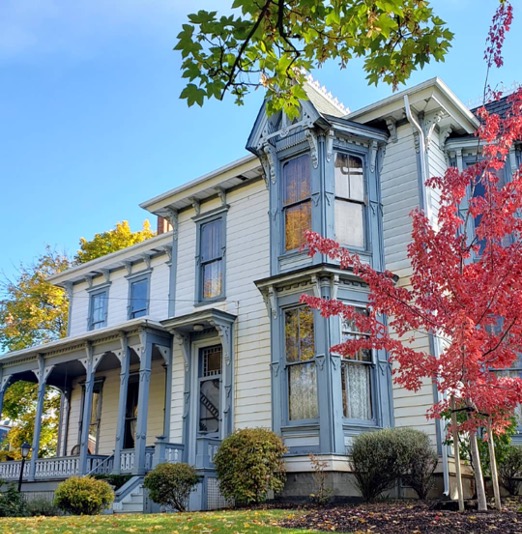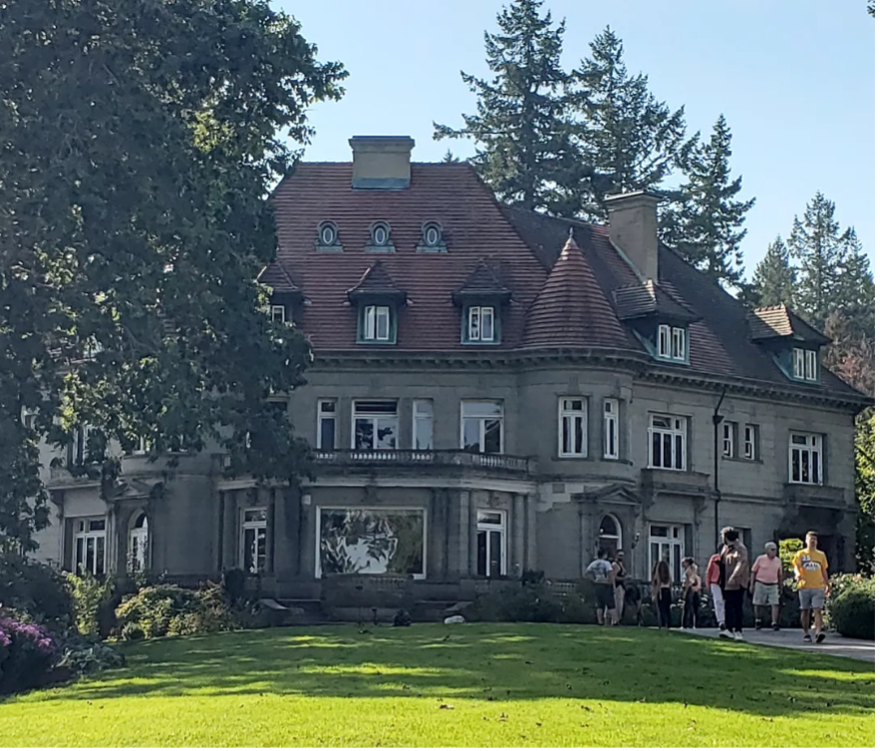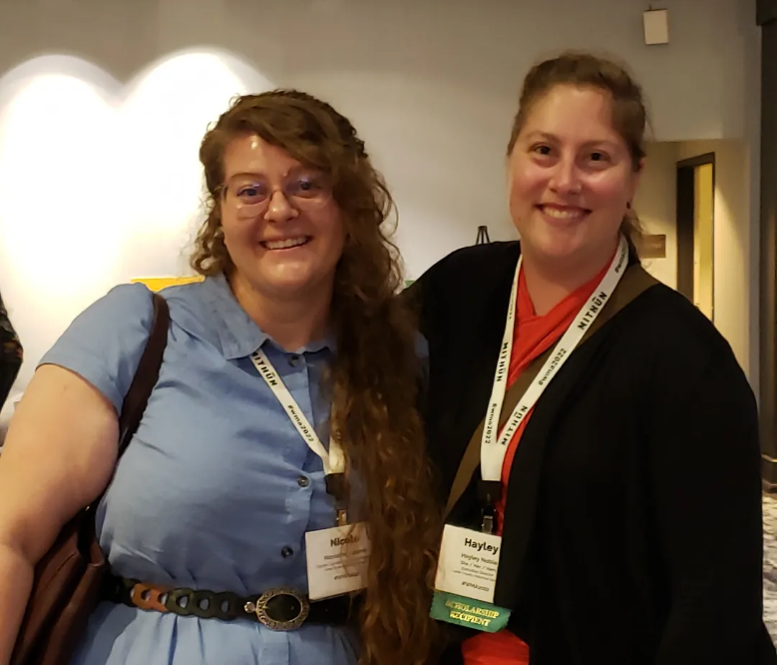Written by 2022 Wanda Chin Scholarship Recipient Hayley Noble
The 2022 WMA Annual Meeting in Portland was not the first meeting I attended, but it was the first in a leadership position. Previously, I attended the Boise meeting in 2019 as a part-time employee with the Idaho State Historical Society. Now in 2022, I am the Executive Director of a small historical society that runs a house museum in Northern Idaho, and I came away from the meeting with much different take-aways compared to 2019. I think now being in a leadership role, the conference was much more impactful and provided many opportunities to learn from my peers in similar positions. Seeing what other larger, better funded institutions are doing was overwhelming at times, but also inspiring to learn about those amazing accomplishments.

McConnell Mansion Historic House Museum in Moscow, Idaho
Visiting the Pittock Mansion Museum was a particularly helpful experience to see how exhibits were put together, how certain elements of the house were discussed, and how we at the McConnell Mansion Museum can improve those areas in our own space. It was also comforting to see that larger museums in various geographic areas are facing the same challenges that a small historical society is: how do we retain volunteers, how do we discuss challenging topics, and how do we stay relevant to our prospective communities? I was very pleased to see how many sessions were dedicated to those challenges, especially concerning native history and tribal collaboration. I can see that we have a long way to go to be on par with larger institutions, but I also saw that we are on the right track and heading in the right direction. In the wake of the pandemic, we are all struggling, and I enjoyed the frank conversations surrounding employee well-being, diversifying boards, and how to be more equitable is our practices. Being in Idaho can be especially challenging in regard to tackling race, sexuality, and diverse stories, and seeking solidarity with others in similar difficult situations was a comfort.

Pittock Mansion Museum in Portland, Oregon
Yet, seeing the amazing things museums have done with large staffs and million-dollar budgets, it was also disheartening for me with a staff of two and half with limited funding. How can we possibly achieve similar outcomes with far-limited resources available? It also made me realize the work that still needs to be done. Even internal policies, like disaster planning, diversity, harassment, and violence, and thinking about how we can be more welcoming as an institution were in the forefront of my thoughts. Despite these musings, the majority of the meeting was encouraging. The mix of session topics meant that there was no shortage of ideas to take away and apply in our own ways, with the means available to us.
Being a new Executive Director, I also appreciated the honest discussions about leadership and how to lead by example through the trials that the panelists shared. Their experiences informed my understanding of what it means to be a leader and how priorities have changed post-COVID. Of course, I knew all of these things, but to see those ideas in action was extremely beneficial to my limited scope of operations far-removed from large museums and galleries. Running a museum and non-profit means I saw the mistakes I was making by not having a healthier work-life balance, and since the meeting, I have been cognizant to emphasize that among myself and my employees, by recognizing that overworking myself does no one any good. I’m hopeful that these lessons from the 2022 Portland WMA annual meeting help improve the Latah County Historical Society work culture, collection practices, and create a more inclusive museum and working space.

Hayley with fellow Idaho attendee Nicole Inghilterra in Portland, Oregon.
Hayley Noble is the Executive Director of the Latah County Historical Society and a 2022 Wanda Chin Scholarship recipient. She holds a MA in public history from Boise State University with an emphasis in military history. Hayley serves on the Latah County Preservation Commission, the Idaho Association of Museums Board, and the New Professional and Student Committee with the National Council on Public History. She lives in Moscow, Idaho with her golden retriever, Indy, and cat, Artemis.







